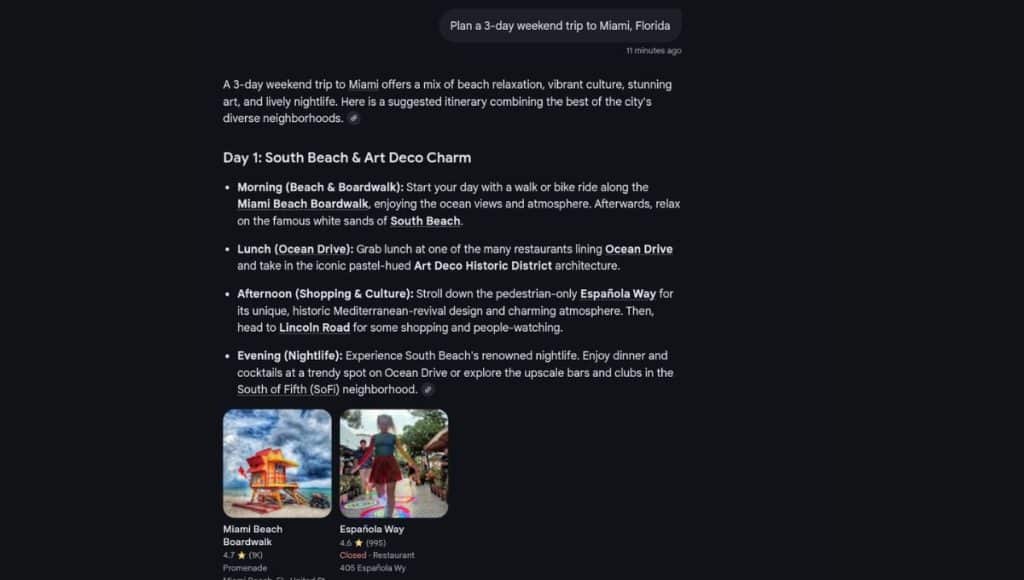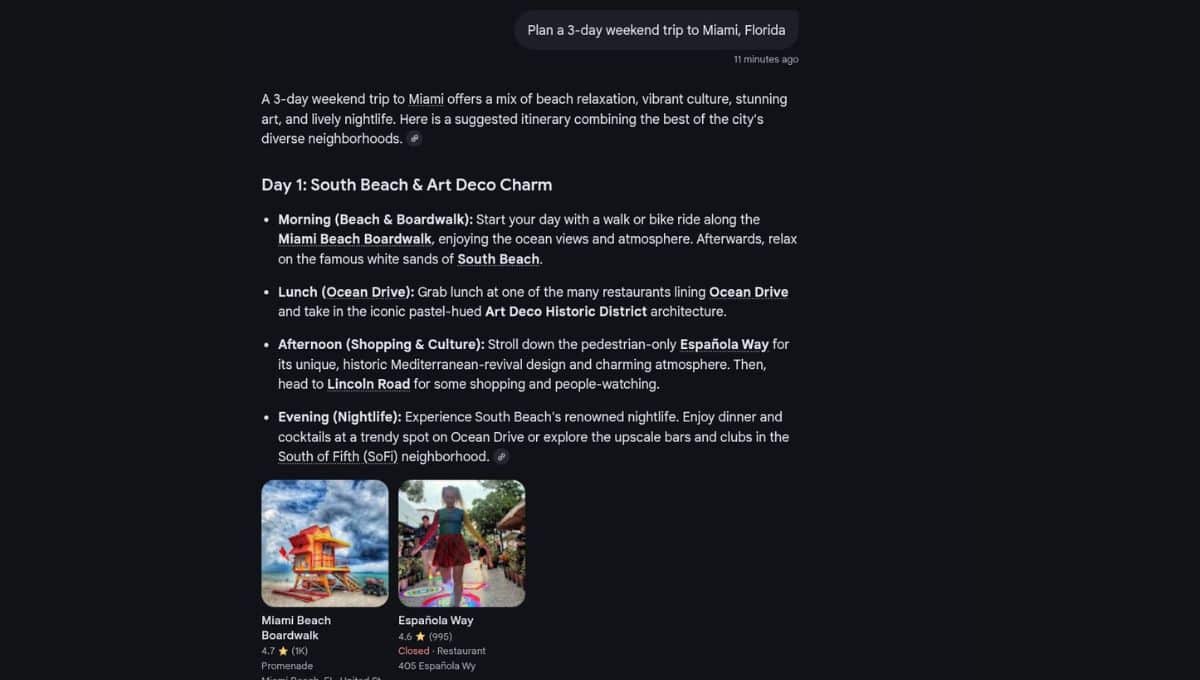Google is pushing the boundaries of search, transforming it from a simple query tool into a highly personalized, intelligent assistant.
Recent statements from Google’s VP of Product, Robby Stein, confirm the company’s intent to make AI Mode as personal as possible—meaning it will soon tap into private data from services like Gmail and Drive.
This ambitious move promises unmatched convenience but triggers major global conversations about privacy, control, and the future of online data usage.
To understand the tracking implications of this feature, Read More

Table of contents
- 1. Quick Answer: Does Google AI Mode Know Everything About You?
- 2. The Future of Search: Hyper-Personalization Through Private Data
- 3. Which Google Services Will AI Mode Access? (The Data Points)
- 4. The Privacy Question: Is This Opt-in or Mandatory?
- 5. The Impact on Users and SEO Strategy (What Changes Now?)
- 6. Conclusion: The Trade-off Between Helpfulness and Privacy
- Frequently Asked Questions
1. Quick Answer: Does Google AI Mode Know Everything About You?
Yes, eventually, but only if you allow it.Google is developing a feature that allows users to voluntarily “opt-in” to an experience with enhanced personalization.
By opting in, the AI Mode will gain access to your private information within your Google ecosystem to generate truly customized, relevant, and actionable responses.
The future of search is a trade-off: unprecedented personalization in exchange for unprecedented data access.
2. The Future of Search: Hyper-Personalization Through Private Data



Important Note: While this plan is generated using public data, the future Opt-in mode of Google AI will use your private documents (Gmail, Drive) to automatically insert your confirmed flight times, booked hotels, and existing budget into the itinerary, showcasing its ‘know everything’ capability.
Traditional search relies on public web links. AI Mode aims to provide answers based on your unique context.
According to Google, the goal is to create a search experience that is “more helpful”.
This hyper-personalization means the AI can act as a personal agent, performing complex, multi-step tasks that require knowledge of your schedule, documents, and past behavior.
For instance, AI Mode could:
- Summarize flight times and gate information directly from your Gmail.
- Create a detailed travel itinerary by cross-referencing trip ideas found in your Drive documents with availability found on the web.
- Suggest dinner plans based on your Google Maps history and time slots available in your Calendar.
3. Which Google Services Will AI Mode Access? (The Data Points)
The key difference between AI Mode and a standard search is the integration of your Google Workspace ecosystem.
The primary services Google intends to connect (with user permission) are:
- Gmail: To understand communications, summarize emails, and extract event/order details.
- Google Drive: To access personal documents, research, and notes for deep context.
- Google Calendar: To understand your availability and scheduling constraints for task execution.
- Search and Maps Activity: To tailor local and shopping recommendations based on past behavior.
This level of integration ensures the AI results are not generic, but are uniquely tailored to your individual needs and life context.
4. The Privacy Question: Is This Opt-in or Mandatory?
The central feature that mitigates public anxiety is the opt-in mechanism.
Google has made it clear that users will have the choice and control to decide whether to participate in this enhanced personalization experience.
| Feature | Description | Implication for privacy |
| Opt-in Only | Users must actively choose to grant AI Mode access to their private apps (Gmail, Drive). | This gives the user full control. If you don’t opt-in, the AI remains restricted to public web data. |
| No Confirmation on Training | It remains unclear whether Google plans to use this personal information to train its large language models (LLMs). | This is the biggest potential privacy risk. Users are trusting Google not to use their private data to improve the general model. |
| Testing in Labs | Google has started early testing, currently limiting personalization to shopping and local recommendations. | This phased rollout allows Google to collect feedback and address privacy concerns before a wider launch. |
5. The Impact on Users and SEO Strategy (What Changes Now?)
For Users (The Convenience vs. Risk)
Users gain a powerful tool that moves beyond searching and into doing. However, they must be comfortable with a single company having an unprecedented view of their digital life.
For SEO and Marketers (The Optimization Shift)
This change signals a major shift in how content must be designed:
- Optimization for Context: Content must be highly structured and semantically clear, not just for keywords, but for personal contexts like “planning a move,” “booking a trip,” or “changing careers.”
- Modular Content: AI Overviews will pull information from multiple sources. Your content must be modular—meaning each section stands alone and provides a distinct, clear answer that the AI can easily incorporate into its summaries.
- Focus on Authority: Since the AI still relies on high-quality web sources to fill its answers, Domain Authority and Topical Authority become more critical than ever.
6. Conclusion: The Trade-off Between Helpfulness and Privacy
The statement “Google says Search AI Mode will know everything about you” summarizes a technological leap that is both exciting and unsettling.
Google’s vision is a personal search assistant that understands you better than you understand yourself.
While the company assures that the access is opt-in, users must weigh the benefits of hyper-personalized convenience against the inherent risk of centralizing their most private data with one corporation.
The future of search will be defined not just by AI capability, but by user trust and control.
Frequently Asked Questions
1. Why is AI showing up in my Google Search?
AI is showing up in Google Search primarily because the company is transitioning from traditional information retrieval to a Generative Engine Experience (SGE). The goal is to provide direct, compiled answers to complex queries, rather than just a list of links, by using Large Language Models.
2. What is AI Mode in Google Search?
AI Mode (also known as Search Generative Experience or SGE) is an advanced feature that uses Artificial Intelligence to generate detailed summaries, plans, and answers directly on the search results page. It is designed to handle multi-step questions and is currently being tested for hyper-personalization features.
3. Why does Google want to know everything about me?
Google’s intent to “know everything” is driven by the aim of hyper-personalization. By using data from services like Gmail and Drive (only if the user explicitly opts-in), the AI can provide highly relevant and useful answers, such as creating a travel itinerary based on your actual booked flights and hotel reservations.
4. Why is Google using AI for searches?
Google is using AI to make search “more helpful” and efficient. AI allows the search engine to understand the context and intent behind a user’s query much better than before. This leads to faster answers, better comparison shopping, and the ability to solve complex problems without needing to click through multiple websites.
Hello, my name is Zeeshan Salam. I've been an entrepreneur and an expert in on-page SEO for more than three years, and I've helped people find digital content more easily in search engines.
I want to help you navigate and succeed in the digital world by posting high-quality Tech News, in-depth How-To Guides, and helpful Problem-Solving content here.
The main thing I want to do is make hard technical topics easy to understand and useful for everyone.




